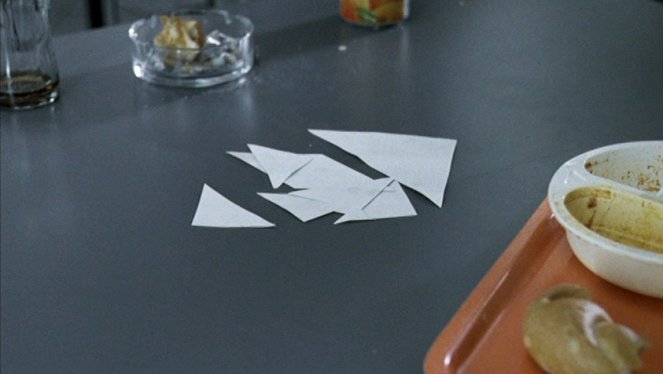Réalisation:
Michael HanekeScénario:
Michael HanekePhotographie:
Christian BergerActeurs·trices:
Lukas Miko, Georg Friedrich, Klaus Händl, Udo Samel, Claudia Martini, Anne Bennent, Branko Samarovski, Axel Sichrovsky, Dorothée Hartinger (plus)VOD (1)
Résumés(1)
La veille de Noël 1993, un étudiant de 19 ans tue, sans motif apparent, plusieurs persones lui étant totalement étrangères. Qu'est-ce qui rapprochait victimes et assassins? (Les Films du Losange)
Critiques (2)
71 fragments de chronologie du hasard et Le Septième Continent sont exactement le contraire de ce qui m'a fait tomber amoureux du cinéma quand j'étais enfant. Aucune poétique visuelle, pas de progression dans l'histoire ou les émotions. Aucune couleur ni tonalité. Juste une philosophie mécanique - bien que brillante intellectuellement - réfléchissant sur l'horreur ou l'imprévisibilité du monde, délibérément assemblée de plans statiques parfois longs à en devenir épuisants. Montés délibérément sans émotion, car Haneke est un rebelle qui refuse de manipuler le spectateur par ce qui rend les films agréables à regarder (le montage) ou émotionnellement puissants (la musique).
()
Haneke's return to the radical approach of his debut. An incoherently chopped stream of fragments, long, seemingly useless details of mundaneness, and documentary inserts in the form of news from massacres and wars. Another player appears in Haneke's cold and withdrawn world – coincidence. The director's fragmentary vision stands beside the analysis of the disintegration of modern values, and it is a vision that presents disjointed scenes to the viewer. Is there any motivation or interconnectedness between them? Does madness and decay spring from namable sources? Haneke's answer is chilling with its non-participation and absurdity. His small world is connected to the world of great history by a moment of moral crisis... continuous vessels in which blood, anger and hopelessness spill over. Although the cruelty of great events in history is not surprising, the small ones always get to us. At the same time, as Haneke shows, it is the same flesh, the same evil. The same creature. Mensch.
()

